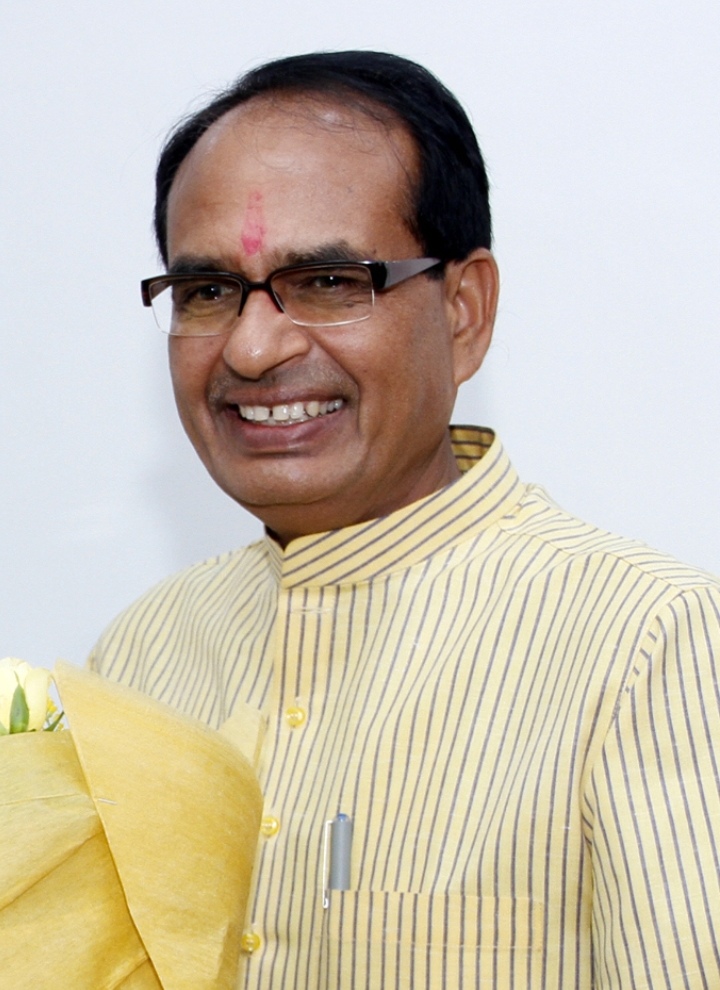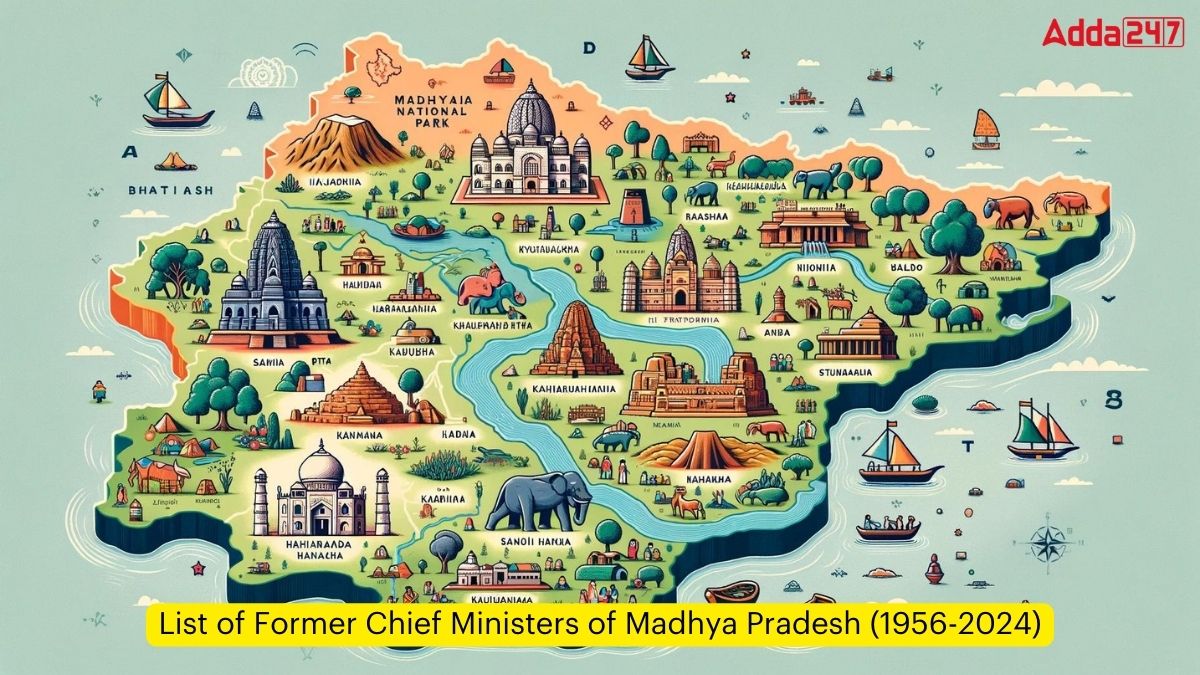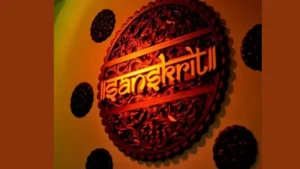Madhya Pradesh, nestled in the heart of India, has witnessed the leadership of several notable figures who have shaped its political landscape over the years. As we delve into the annals of its history, let’s explore the list of former Chief Ministers who have steered the state through various socio-political challenges and milestones.
Chief Ministers of Madhya Pradesh
The States Reorganisation Act of 1956 amalgamated Madhya Bharat, Vindhya Pradesh, and Bhopal into Madhya Pradesh on November 1, 1956. Since then, the state has witnessed 19 Chief Ministers. Pt. Ravishankar Shukla was the inaugural Chief Minister. Of the total, 12 Chief Ministers were from the INC. The first Non-Congress Chief Minister was Govind Narayan Singh, leading the Samyukta Vidhayak Dal government from 1967 to 1969. Digvijaya Singh of the Congress served two full five-year terms. Uma Bharti of the BJP became the state’s first and only female Chief Minister, serving for one year. Shivraj Singh Chouhan longest-serving Chief Minister, assuming office in 2005 and serving for 13 years. Madhya Pradesh has undergone Presidential rule thrice over brief periods. The major political parties dominating the state have been the BJP and INC.
Inaugural Chief Minister of Madhya Pradesh

Pandit Ravishankar Shukla served as the first Chief Minister of Madhya Pradesh from November 1, 1956, to December 31, 1956, holding the position for 6 years and 340 days. He played a pivotal role in the state’s early governance, contributing to its establishment and initial development during his tenure.
Current Chief Minister of Madhya Pradesh

Dr. Mohan Yadav, an Indian politician and entrepreneur, presently holds the position of the 19th Chief Minister of Madhya Pradesh, assuming office in 2023. A stalwart of the Bharatiya Janata Party, he represents the Ujjain South constituency in the Madhya Pradesh Legislative Assembly since 2013, bringing a blend of political acumen and business expertise to his leadership role.
First Woman Chief Minister of Madhya Pradesh

Uma Bharti made history by becoming Madhya Pradesh’s first female Chief Minister, serving from December 8, 2003, to August 23, 2004. Her tenure marked a significant milestone in the state’s political landscape, showcasing her leadership prowess and breaking gender barriers in governance, leaving a lasting legacy of empowerment and progress.
Longest Serving Chief Minister of Madhya Pradesh

Shivraj Singh Chouhan, from the Bharatiya Janata Party, held the record for being the longest-serving Chief Minister of Madhya Pradesh, serving for over 16 and a half years. Dr. Mohan Yadav, also from the BJP, succeeded him after the 2023 elections, which marked a significant victory for the party after 16 years in power.
List of Former Chief Ministers of Madhya Pradesh (1956-2024)
The States Reorganisation Act of 1956 amalgamated Madhya Bharat, Vindhya Pradesh, and Bhopal into Madhya Pradesh on November 1, 1956. Since then, the state has witnessed 19 Chief Ministers.
Here is the complete list of former chief ministers of Madhya Pradesh from 1956-2024:
| Former Chief Ministers of Madhya Pradesh | |||
| S. No. | Name | From | To |
| 1. | Pt. Ravinshankar Shukla | 01 Nov 1956 | 31 Dec 1956 |
| 2. | Bhagwantrao Mandloi | 01 Jan 1957 | 30 Jan 1957 |
| 3. | Kailash Nath Katju | 31 Jan 1957 | 14 Mar 1957 |
| 4. | Kailash Nath Katju | 14 Mar 1957 | 11 Mar 1962 |
| 5. | Bhagwantrao Mandloi | 12 Mar 1962 | 29 Sep 1963 |
| 6. | Dwarka Prasad Mishra | 30 Sep 1963 | 08 Mar 1967 |
| 7. | Dwarka Prasad Mishra | 09 Mar 1967 | 29 Jul 1967 |
| 8. | Govind Narayan Singh | 30 Jul 1967 | 12 Mar 1969 |
| 9. | Raja Nareshchandra Singh | 13 Mar 1969 | 25 Mar 1969 |
| 10. | Shyama Charan Shukla | 26 Mar 1969 | 28 Jan 1972 |
| 11. | Prakash Chandra Sethi | 29 Jan 1972 | 22 Mar 1972 |
| 12. | Prakash Chandra Sethi | 23 Mar 1972 | 22 Dec 1975 |
| 13. | Shyama Chandra Shukla | 23 Dec 1975 | 29 Apr 1977 |
| 14. | President’s Rule | 29 Apr 1977 | 25 Jun 1977 |
| 15. | Kailash Chandra Joshi | 26 Jun 1977 | 17 Jan 1978 |
| 16. | Virendra Kumar Saklecha | 18 Jan 1978 | 19 Jan 1980 |
| 17. | Sunderlal Patwa | 20 Jan 1980 | 17 Feb 1980 |
| 18. | President’s Rule | 18 Feb 1980 | 08 Jun 1980 |
| 19. | Arjun Singh | 08 Jun 1980 | 10 Mar 1985 |
| 20. | Arjun Singh | 11 Mar 1985 | 12 Mar 1985 |
| 21. | Motilal Vora | 13 Mar 1985 | 13 Feb 1988 |
| 22. | Arjun Singh | 14 Feb 1988 | 24 Jan 1989 |
| 23. | Motilal Vora | 25 Jan 1989 | 08 Dec 1989 |
| 24. | Shyama Charan Shukla | 09 Dec 1989 | 04 Mar 1990 |
| 25. | Sunderlal Patwa | 05 Mar 1990 | 15 Dec 1992 |
| 26. | President’s Rule | 16 Dec 1992 | 06 Dec 1993 |
| 27. | Digviijay Singh | 07 Dec 1993 | 01 Dec 1998 |
| 28. | Digvijay Singh | 02 Dec 1998 | 08 Dec 2003 |
| 29. | Uma Bharti | 08 Dec 2003 | 23 Aug 2004 |
| 30. | Babulal Gaur | 23 Aug 2004 | 29 Nov 2005 |
| 31. | Shivraj Singh Chauhan | 29 Nov 2005 | 12 Dec 2008 |
| 32. | Shivaraj Singh Chauhan | 13 Dec 2008 | 13 Dec 2013 |
| 33. | Shivraj Singh Chauhan | 14 Dec 2013 | 17 Dec 2018 |
| 34. | Kamal Nath | 18 Dec 2018 | 23 Mar 2020 |
| 35. | Shivaraj Singh Chauhan | 24 Mar 2020 | 11 Dec 2023 |
| 36. | Mohan Yadav | 13 Dec 2023 | Incumbent |
Functions of a Chief Minister
The functions of a Chief Minister vary somewhat depending on the specific constitutional and legal framework of the region they govern, but generally include the following:
- Head of the Government: The Chief Minister is the head of the state government and is responsible for overseeing the administration of the state.
- Executive Authority: The Chief Minister exercises executive authority over the state government, including the implementation of laws and policies.
- Chief Advisor to the Governor: The Chief Minister serves as the principal advisor to the Governor of the state and is responsible for advising on matters related to the administration of the state.
- Leader of the Legislative Assembly: The Chief Minister leads the ruling party or coalition in the state legislative assembly and is responsible for guiding legislative agenda and priorities.
- Policy Formulation: The Chief Minister plays a key role in formulating state policies and programs, in consultation with other government ministers and officials.
- Administration: The Chief Minister oversees the functioning of various government departments and agencies to ensure efficient delivery of services to the people.
- Representation: The Chief Minister represents the state government in interactions with the central government, other states, and international entities, as necessary.
- Crisis Management: During times of crisis or emergencies, the Chief Minister provides leadership and coordination for response efforts, working with relevant authorities to address the situation effectively.
- Budgetary Control: The Chief Minister has a significant role in the preparation and presentation of the state budget, as well as overseeing its implementation.
- Public Relations: The Chief Minister serves as the public face of the state government, engaging with the media, public, and various stakeholders to communicate government policies and initiatives.




 Which Country is known as the Land of Mo...
Which Country is known as the Land of Mo...
 Which Languages is known as the Mother o...
Which Languages is known as the Mother o...
 Which Country is known as the Highest Pr...
Which Country is known as the Highest Pr...








